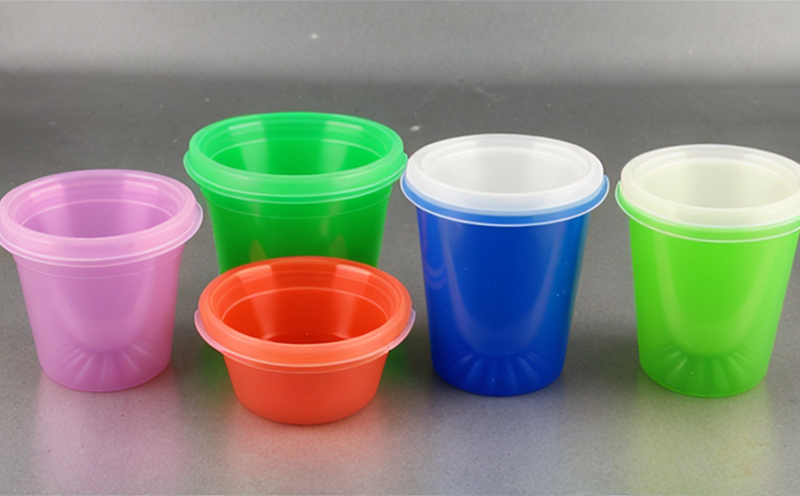ISO 1133 Melt Flow Index Testing of Disposable Plastics
ISO 1133 is an internationally recognized standard that provides a method for the determination of the melt flow rate (MFR) or melt mass flow rate (MMFR) of thermoplastics. This test evaluates how easily a polymer flows when subjected to shear stress, which is crucial in understanding the material's processing behavior and its suitability for use as disposable plastics.
The Melt Flow Index (MFI) test measures the amount of polymer that can be forced through a die at a specified temperature and load over 10 minutes. This measurement provides insight into the molecular weight distribution, viscosity, and overall processability of the material. The results are particularly important for industries where high-speed manufacturing processes such as extrusion or injection molding are used.
For disposable plastics, accurate MFI testing is essential to ensure product consistency and performance. This test helps manufacturers optimize their production processes, ensuring that the materials meet the required specifications for safety and functionality. The ISO 1133 standard ensures that all tests are conducted under controlled conditions, which enhances the reliability of the results.
The test setup involves heating a sample to a specified temperature, typically between 190°C and 230°C depending on the material type, and applying a specific load. The melted polymer is then forced through a standardized die, and the weight of the polymer that passes through in one minute is measured. This value represents the MFI.
The test procedure must be conducted with precision to ensure accurate results. Key factors include maintaining consistent temperature settings, using appropriate loads, and ensuring that the sample is prepared correctly. Proper specimen preparation involves cutting the material into small cylindrical specimens of a specific diameter and length.
| Material Type | Industry | Application |
|---|---|---|
| Polystyrene (PS) | Toys and Packaging | Manufacturing lightweight, durable packaging materials. |
| Polypropylene (PP) | Medical Devices | Production of disposable syringes and catheters. |
| Polyethylene (PE) | Beverage Containers | Creation of lightweight, recyclable bottles. |
| Copolymer Polyethylene (CPE) | Garbage Bags | Production of strong, tear-resistant garbage bags. |
The MFI test is not only crucial for ensuring material consistency but also plays a vital role in environmental considerations. Understanding the processability and flow characteristics helps manufacturers design products that are both functional and sustainable. By optimizing the production process, they can reduce waste and energy consumption.
Moreover, accurate ISO 1133 testing ensures compliance with regulations and industry standards. This is particularly important for disposable plastics, which may come into contact with food or medical devices. Ensuring that these materials meet stringent quality control measures helps protect public health and safety.
In conclusion, the ISO 1133 MFI test is an essential tool in the development and production of disposable plastics. It provides critical insights into material behavior under shear stress, ensuring that products are safe, functional, and environmentally responsible.





